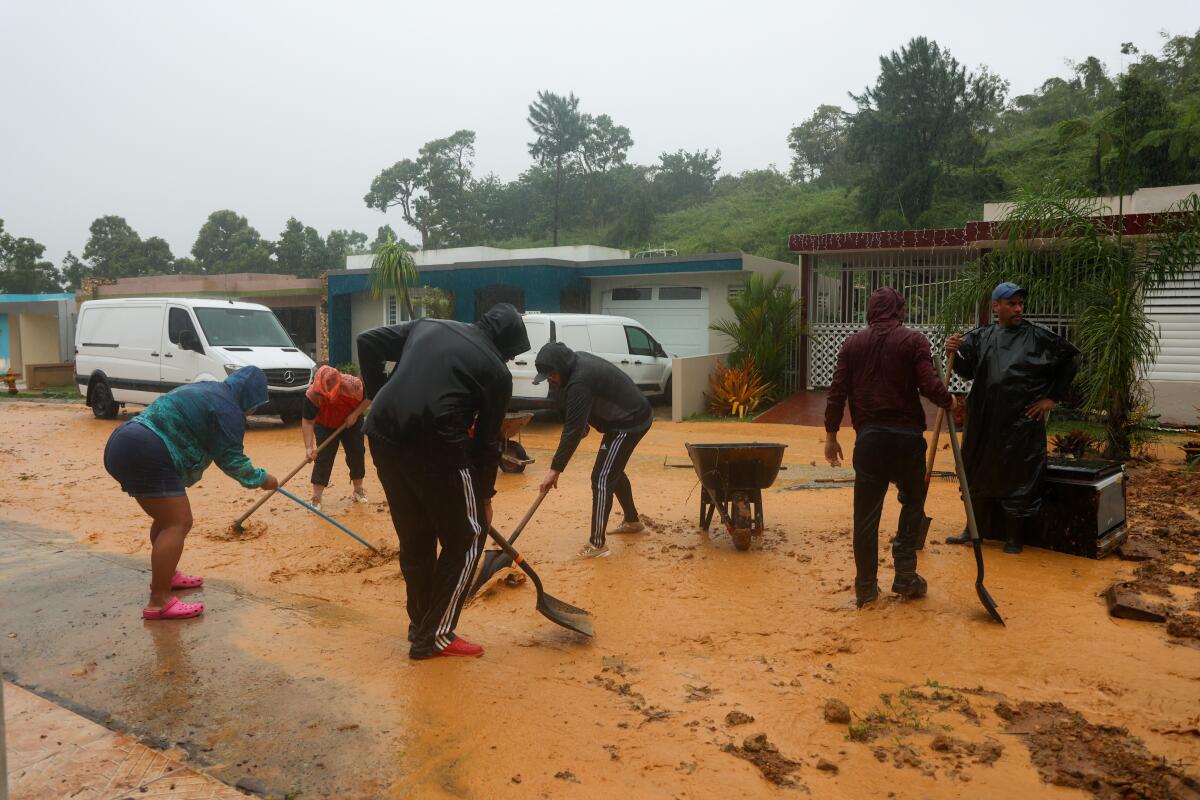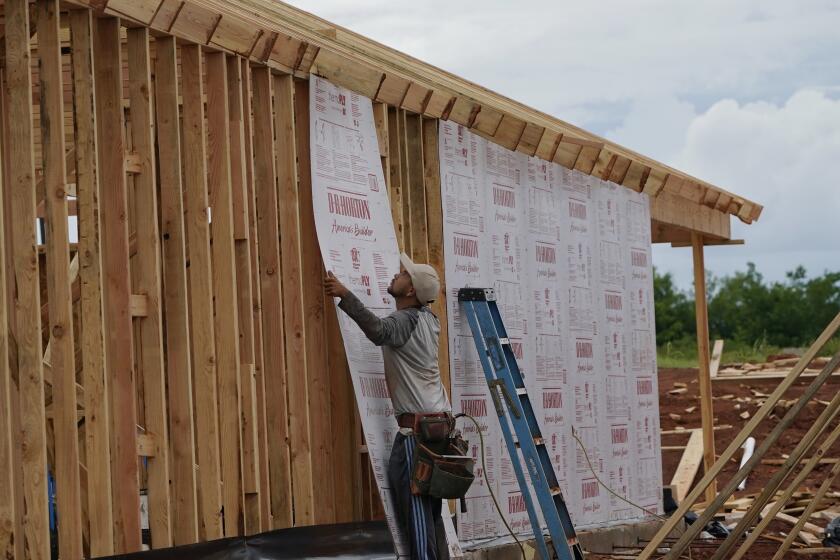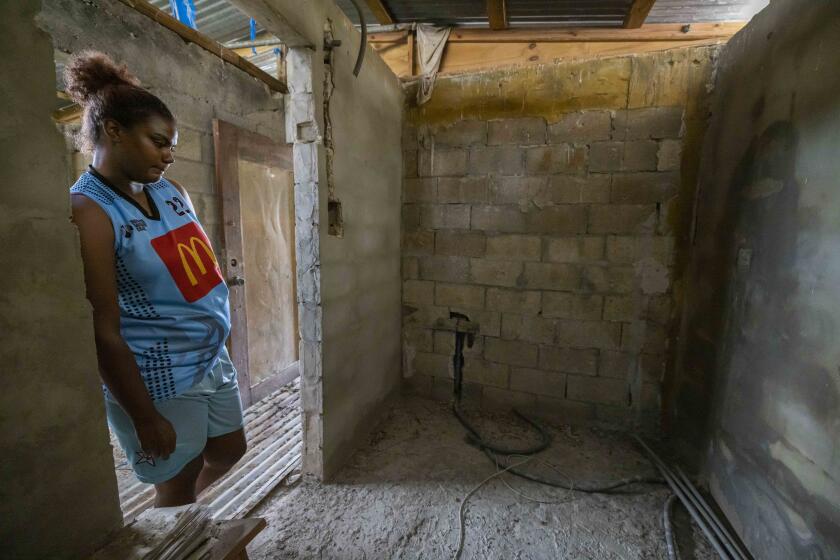Hurricane Fiona knocks out power across Puerto Rico

- Share via
HAVANA — Hurricane Fiona struck Puerto Rico’s southwest coast Sunday as it unleashed landslides, knocked out the power grid and ripped up asphalt from roads and flung the pieces around.
Hundreds of people were evacuated or rescued across the island as floodwaters rose swiftly. Rushing rivers of brown water enveloped cars, first floors and even an airport runway in the island’s southern region.
Forecasters said the hurricane threatened to dump historic levels of rain on Sunday and Monday, with up to 30 inches possible in eastern and southern Puerto Rico.
“The damages that we are seeing are catastrophic,” Gov. Pedro Pierluisi said.
The storm washed away a bridge in the central mountain town of Utuado that police say was installed by the National Guard after Hurricane Maria hit in 2017. Large landslides also were reported, with water rushing down big slabs of broken asphalt and into gullies.
Fiona was centered 50 miles southeast of Punta Cana, Dominican Republic, with maximum sustained winds of 85 mph on Sunday night, according to the U.S. National Hurricane Center. It was moving to the northwest at 9 mph.
Pressure on state and local governments can sway the policies that will determine our climate’s future.
Fiona struck on the anniversary of Hurricane Hugo, which hit Puerto Rico 33 years ago as a Category 3 storm.
The storm’s clouds covered the entire island and tropical storm-force winds extended as far as 140 miles from Fiona’s center.
President Biden declared a state of emergency in the U.S. territory as the eye of the storm approached the island’s southwest corner.
Luma, the company that operates power transmission and distribution, said bad weather, including winds of 80 mph, had disrupted transmission lines, leading to “a blackout on all the island.”
“Current weather conditions are extremely dangerous and are hindering our capacity to evaluate the complete situation,” the company said, adding that it could take several days to fully restore power.
Health centers were running on generators — and some of those had failed.
Health Secretary Carlos Mellado said crews rushed to repair generators at the Comprehensive Cancer Center, where several patients had to be evacuated.
Fiona hit just two days before the anniversary of Hurricane Maria, a devastating Category 4 storm that struck on Sept. 20, 2017, destroying the island’s power grid and causing nearly 3,000 deaths.
More than 3,000 homes still have only a blue tarp as a roof, and infrastructure remains weak, including the power grid. Outages remain common, and reconstruction started only recently.
The government has completed only 21% of more than 5,500 official post-hurricane projects, and in some municipalities not a single project has begun.
Fiona was forecast to swipe the Dominican Republic on Monday and then northern Haiti and the Turks and Caicos Islands with the threat of heavy rain. It could threaten the far southern end of the Bahamas on Tuesday.
A hurricane warning was posted for the Dominican Republic’s eastern coast from Cabo Caucedo to Cabo Frances Viejo.
Fiona previously battered the eastern Caribbean, killing one man in the French territory of Guadeloupe when floods washed his home away, officials said. The storm also damaged roads, uprooted trees and destroyed at least one bridge.
More to Read
Sign up for Essential California
The most important California stories and recommendations in your inbox every morning.
You may occasionally receive promotional content from the Los Angeles Times.















